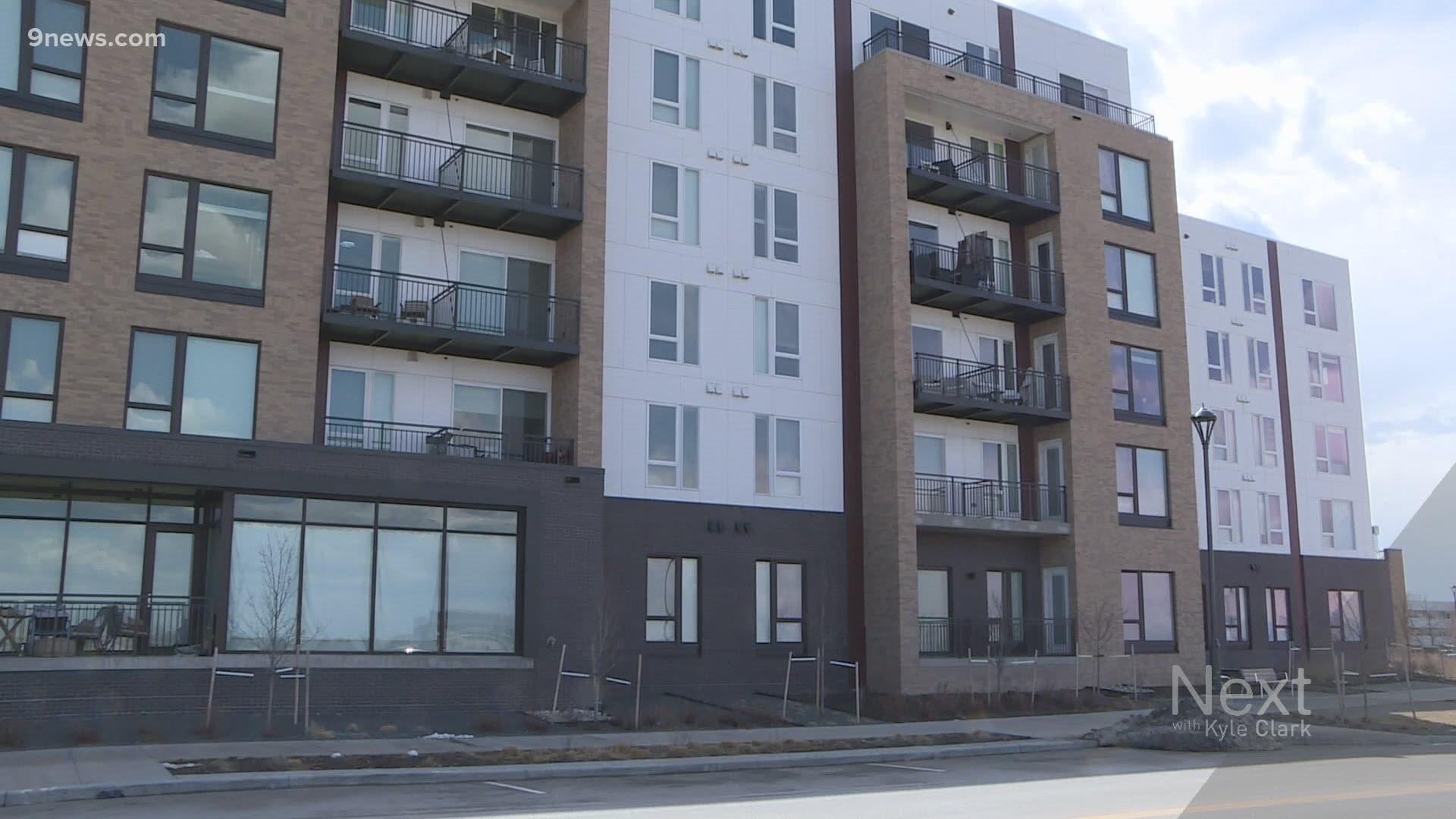DENVER — As many people continue to experience financial impacts from the coronavirus pandemic, Governor Jared Polis (D-Colorado) extended a ban on evictions, but certain criteria must be met to demonstrate that the financial hardship is related to COVID-19.
Polis signed an executive order which amends the protections for residential and commercial tenants who are at risk for eviction because they were economically harmed by COVID-19.
> Above video: Concerns of recent COVID-19 trends
According to the new amendments, which are outlined on page three of the order, all of the following criteria must be met for an individual to qualify for “financial hardship due to COVID-19”.
- Is using best efforts to obtain government assistance for rent or housing
- Either (1) expects to earn no more than $99,000 in annual income for the calendar year 2020 (or no more than $198,000 if filing a joint tax return) or (2) was not required to report any income in 2019 to the U.S. Internal Revenue Service; or (3) received an Economic Impact Payment (stimulus check) pursuant to Section 2201 of the federal CARES Act;
- Is unable to pay the full rent or make a full housing payment due to substantial loss of household income, loss of compensable hours of work or wages, a lay-off, or extraordinary out-of-pocket medical expenses
- Is using best efforts to make timely partial payments that are as close to the full payment as the individual’s circumstances may permit, taking into account other nondiscretionary expenses
- Would likely be rendered homeless or forced to move into and live in close quarters in a new congregate or shared living setting because the individual has no other available housing options if evicted.
RELATED: This nonprofit is working to prevent Coloradans from losing their homes during the pandemic
Polis directed the Colorado Department of Local Affairs (DOLA) to create a declaration form that uses the requirements outlined above as a way for tenants to demonstrate their financial hardship is due to COVID-19.
The form must be signed and completed under penalty of perjury and provided to their landlord, according to the order. Tenants could also choose to fill out a similar declaration form from the Centers for Disease Control and Prevention to demonstrate their hardships.
The new order will remain in effect for 30 days from Oct. 21.
The order is a victory for housing advocates, who’ve argued the CDC moratorium includes holes that still have allowed evictions in Colorado.
“It’s been a roller coaster with a patchwork of different regulations and different policies,” said Zach Neumann, one of the founders of the Colorado Eviction Defense Project, a legal team offering help to tenants facing eviction since the beginning of the pandemic.
“It becomes more difficult to evict tenants who are unable to pay their rent or alternatively tenants who are on month-to-month leases,” he said.
But advocates for landlords questioned the governor’s authority to impose such a restriction.
“Nobody wants to be in the business of suing their state government but – at this point there seems to be so little attention paid to constitutional protections that may be the only option for landowners,” said Drew Hamrick, general counsel for the Apartment Association of Colorado, a trade group representing landlords within the state.
“These moratoria are so harmful to the smaller property owners with a non-diversified portfolio,” he said.
Hamrick argues his organization reports that people have been paying rent on time since the pandemic began, and the eviction situation framed by housing advocates isn’t as bad as it's made out to be.
“Eviction rates all through this time have been only a fraction of what they usually are,” Hamrick said. “So the markets held together pretty well.”
In each of the first two months of the year, the total number of unique eviction cases filed in Colorado totaled more than 3,000, according to state court data provided to 9EWS. The data doesn’t include filings in the city and county of Denver.
In March, when the federal CARES Act banned some evictions, the total number was cut in half. And in April, when Gov. Jared Polis outlawed evictions, the state saw 100 eviction filings.
But in the months following, when some federal and state limitations expired, the total of case filings went back up.
Polis’ original moratorium was eased in March. That month, the state reported 538 eviction filings, according to the data. By July, the number reached 1,070. And in August, it grew again to 1,462.
September filings, even after the CDC’s new rule, grew to 1,769, according to that court data. While the CDC’s moratorium doesn’t allow tenants to be evicted, landlords can still initiate court filings.
Polis’ order, which would keep evictions out of the court system, requires tenants to sign a form, under penalty of perjury, verifying their financial hardship was caused by COVID-19.
“The issue becomes well what happens if you don’t think they’re telling the truth,” Hamrick said. “That’s what you need a court for is to look at the form – talk to both parties and make a decision whether the representations in the form are true or not.”
Last week, Governor Polis signed an Executive Order D 2020 223 which included the following recommendations of the Eviction Prevention Task Force:
Suspension of the assessment and accumulation of late fees and interest until Dec. 31, 2020.
Continuation of the 30-day extended period to cure for both commercial and residential evictions.
Directs the Executive Director of DOLA to continue working with landlords to implement the model rent repayment agreements created by DOLA to assist individuals who are unable to pay rent because they have been impacted by financial hardship due to COVID-19.
Encourages municipalities to remove limits on the number of unrelated persons who can live in a single household and on the number of days that hotel rooms may be occupied
SUGGESTED VIDEOS: COVID-19 Coronavirus

